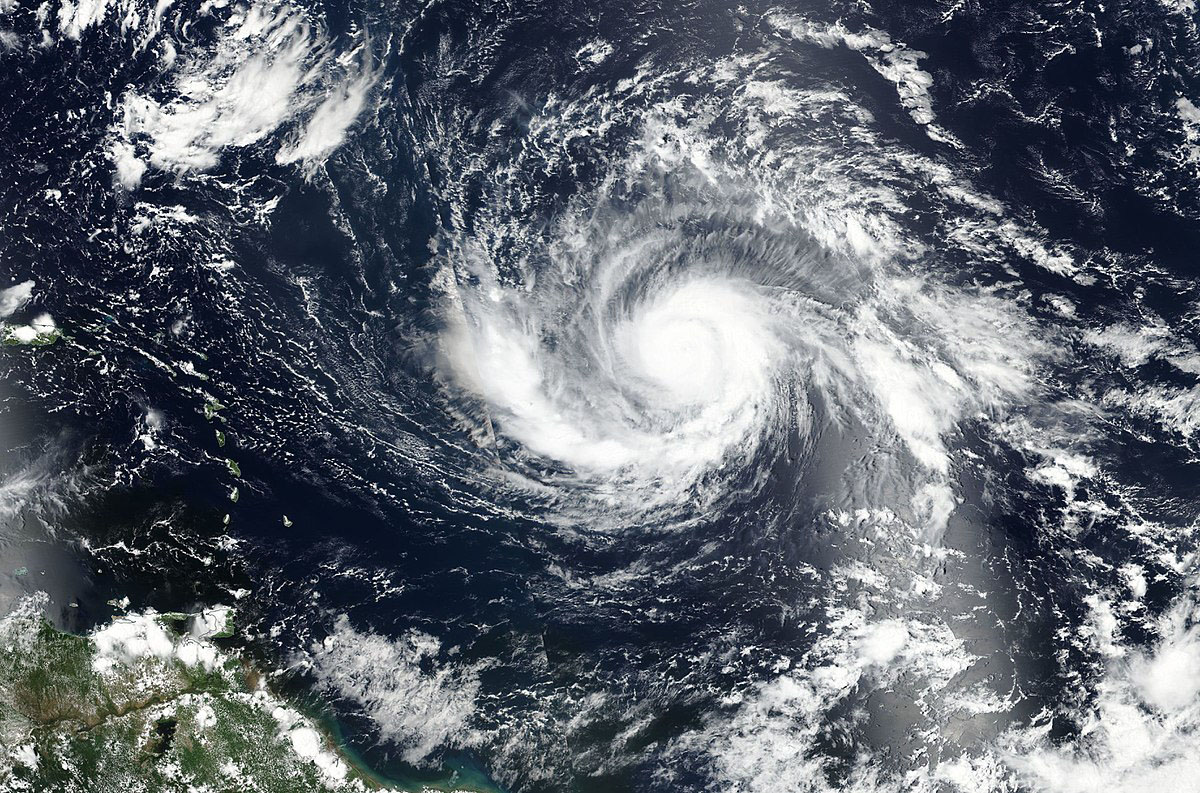
Satellite view of Hurricane Irma on September 3 (Photo: NASA/Creative Commons)
By the time we are able to comprehend the magnitude of one disaster and scramble in our efforts to aid victims, it seems that another is on the horizon, wreaking havoc and guaranteeing destruction.
Climate scientists have warned the public time and time again that the effects of climate change will elicit more severe weather patterns, especially for coastal communities; and still, the willful ignorance of certain American politicians stands in the way of investment into meaningful adaptation and mitigation strategies. In developed nations, there are funds for dealing with the aftermath of a disaster, but not quite enough to invest in preventative measures.
Less than two weeks after Texas was hit with a Hurricane Harvey, a Category 4 system that left 70 dead and hundreds displaced, Florida and the Caribbean islands were at the forefront of an even stronger storm, Hurricane Irma, a Category 5 superstorm that left 38 dead in the Caribbean, 22 in the US, and hundreds more displaced.
The Governor of Florida, Rick Scott, is a powerful climate change sceptic, who has been warned consistently about the dangers posed to his state by the effects of climate change and has been steadfast in doing nothing to address the issue. Florida is a low-lying peninsula, with 2,170 kilometres of coastline vulnerable to sea level rise. Since Scott took office, he has secretly discouraged state agencies from using the words “climate change” and “global warming” (he denies this), and effectively dismantled the Florida Energy and Climate Commission. Conservation expert, Kathy Baughman McLeod, a former member of the Commission, stated, “If there is climate action, it’s all coming from local and regional collaboration. There is no state leadership on climate change in Florida, period.” This means that cities have to self-fund major infrastructure investments to simply stay above water.
Another prominent climate sceptic is US President, Donald Trump, who vowed to handle the crisis in Florida and Texas “better than Katrina.” Over the years, he has been back-and-forth on his belief in climate science. Since becoming the leader of the free world, he has criticised the Environmental Protection Agency heavily for what he deems ‘business-killing regulations.’ Scott Pruitt, the climate change denier who heads the agency, said that it would be “extremely insensitive” to Floridians to talk about climate change as they deal with the aftermath of the disaster.
Citizens and politicians from all over the world are showing their support, financially and morally, as the region rebuilds, but those who believe in climate change, are not so surprised by the event. This weather event was expected – its magnitude broke records, but that eventuality was foreseen by the many scientists who warned the public and encouraged politicians to act sooner rather than later to curb rising temperatures. Warmer weather creates conditions conducive for stronger storms. Houston and South Florida are prone to storms, and built on lands that were once swamps – weather experts warned of massive disasters in these specific areas that would decimate thriving communities and require billions in funds to rebuild.
The problem with denying science from a bully pulpit is that your words carry weight, and sway people’s support for various investments. Climate resilience is necessary, as climate change is not a futuristic phenomenon, but is happening now. Many consider these politicians’ aversion to stating their belief in the science of climate change to their ties to dirty energy industries – in the form of campaign contributions. Regardless of the reason, it does a disservice to those who elected them to office and slaps the faces of those suffering in the aftermath to avoid addressing the elephant in the room. Hundreds have lost homes and businesses and may have been better prepared to deal with such a disaster had there been more funding from federal and state agencies to prepare for such an inevitable disaster.
Miami is extremely vulnerable to rising sea levels, and federal Senator, Marco Rubio, who resides there, is yet another climate science sceptic. Miami Beach’s Assistant City Manager and Chief Resiliency Officer, Susy Torriente, recently stated, “Our storm-water program is all funded by the city of Miami Beach residents. We really have not seen state or federal funding in this type of adaptation, unless it comes after a storm.” The US has the financial means to invest in mitigation and adaptation – more so than some of the South Asian countries that experienced far worse flooding that caused many times more casualties in the past few months. The US would do well to become acquainted with the precautionary principle, lest its citizens bear the brunt of a burden that is out of their hands.
Sarah Sakeena Marshall, B.S. Environmental Science & Policy